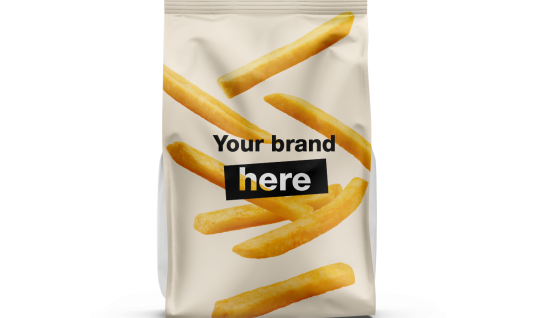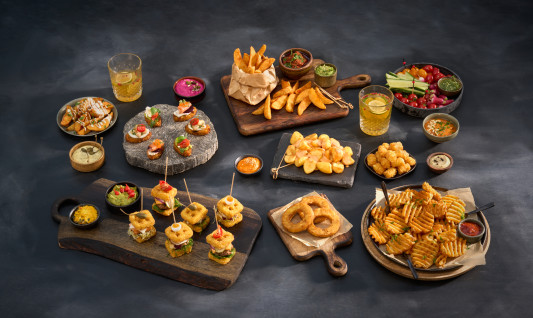
The future belongs to private label

Yes, household budgets remain tight due to inflationary costs and shoppers continue to look for cheaper alternatives than A-brands. This might’ve been your first guess as more than 60% of all European households are having a budget squeeze and moving to private label fits their new budget restrictions. That or the fact that private label offers bigger margins for retailers. But private label has a lot more going for it.
Taking back control
If you’re predominantly working with and offering traditional brands in your chain, you may already have come to the conclusion you rely on brands a lot. Maybe even too much as you depend on the restrictions and - sometimes - whims of their supply chain. Developing a strong private label acts as a buffer and more independent alternative.
You don’t hit a wall when trying to explore new product possibilities in private label to cater to new trends. Even if traditional brands were to take your request into consideration, it would take them substantially more time to develop and rollout the product. Together we can put something entirely new in your store in 3 months, whereas it would take traditional brands approximately 18 months to catch up to market novelties or opportunities.
Alternative that breeds loyalty
Despite the inflationary worries mentioned above, more than 4 out of 10 shoppers worldwide still agree it’s important to indulge or pamper themselves. However, they still want value for money. Premium private label products offer retailers the means to create a balanced portfolio: consumer can opt for comparable quality at a better price range, without having to give up on delicious fries altogether.
Growing shopper category prefers private label
We’ve already seen consumers shift significantly towards private label, mainly the price entry variants, with mid-tier and premium private labels also gaining ground. This shift has is happening at a staggering pace in two big shopper types, being the Flexible Shoppers and in particularly the (Focused) Discount Buyers. This latest consumer type is also growing in size, while the Premium Buyer, who still predominantly buys A-brands, is shrinking (24 to 21% in the 2018-2021 period). In the German market, for example, 86% of Discount Buyers’ total purchases can be categorized as private label products.
Agristo is a firm believer of a premium private label range. We believe it’s so much more than an alternative in your product portfolio, it rivals traditional brands not only in price, but also in quality. Perfectly aligned with current consumer needs. Retailers that embrace this private label approach, will be able to offer a label that consumers see as a reason to keep shopping at their chain or even switch over from another chain. A private label that breeds general brand loyalty.
Developing a qualitative product that caters to your customers’ needs doesn’t have to restrict itself to retail chains. If you’re active in the food service market, you can also benefit from a signature fry that people instantly connect to your brand. Or a totally different potato inspired product that matches your menu perfectly. Food for thought.
Sustainable consumer awareness
Last, but not least, there’s growing sustainable awareness among consumers. No longer a trend, but a given fact: by 2030 half of the world’s population will be defined as ‘eco-actives’, as opposed to 22% in 2020, actively searching for sustainably sourced and environmentally-friendly products. Private labels are ideally positioned to fill this space.
A matter of trust
Why? Because just 1 in 4 shoppers trust traditional brands' claims about their environmental practices. Private label holds a better position to deliver a clear, credible brand narrative around its sustainably efforts and commitments. Let’s cocreate your tasty, trustworthy private label that’ll drive customer retention and acquisition.

